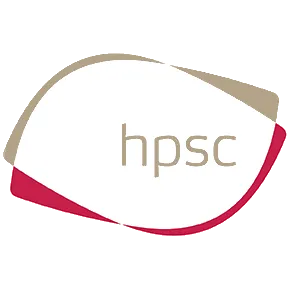Radon and health
What is radon?
Radon is a naturally occurring radioactive gas. It is produced in the ground during the radioactive decay of uranium in rocks and soils.
Why is radon important for health?
Outdoors it is doesn't cause a problem but, because it is a gas, radon can seep into buildings from the ground and can sometimes accumulate to very high concentrations in indoor air.
In the air, radon decays quickly to produce radioactive particles that, when inhaled, are deposited in the airways and on lung tissue. This results in a radiation dose in the lung. Long term exposure to radon has been shown to increase the risk of lung cancer. The risk of radon-related lung cancer is even higher in smokers.
Am I at risk?
Radon is the principal source of radiation exposure in Ireland, representing over 56% of the dose received by the Irish population.
The average indoor radon concentration in Ireland is 89 becquerels per cubic metre (Bq/m3). This is the eighth-highest average concentration in the world. Some of the highest radon concentrations found anywhere in Europe have been found in homes and workplaces in Ireland. Some areas in Ireland have higher radon levels more frequently than in other areas.
How can I protect myself and my family?
You can protect yourself and your family by:
- Radon testing - Radon has no colour, taste or smell but it can be measured using a radon detector. While there is no completely safe level of radon, it is recommended that householders should carry out radon remediation work when the radon level is 200 Bq/m3. The action level for workplaces is higher, at 400 Bq/m3, as people generally spend more time at home than at work. So testing is an important way to protect yourself and your family.
- Avoiding tobacco smoke - Smoking is the leading cause of lung cancer and causes many other health problems. When smokers are exposed to high Radon levels in the home, the risk of lung cancer rises dramatically. The most important protection measure is to stop smoking.
Information, Data and Reports for
-
Environment and Health
- Air Quality
- Bathing Water and Health
- Carbon Monoxide
- Climate Change
- Energy and Health
-
Extreme weather events
- Flooding
- Health Effects of Air Pollution
-
Cold weather
- Cold Weather Advice for the General Public
- Air Quality and Safe Room Ventilation During Cold Weather
- Cold Weather Advice for Older People and their Families and Neighbours
- Cold Weather Advice for Parents and Caregivers: Tips to Keep your Children Warm this Winter
- Cold Weather Advice for People with Specific Medical Conditions
- Cold Weather Advice for Health and Care Professionals
- Useful Links and Resources
- Frostbite and Hypothermia
- Air Pollution Health Advice
- Heat related hazards
- Air pollution from wildfires
- Storms
- Noise: Environmental Noise Guidelines
- Radon and health
- Radiation
- Odour: Environment and Public Health
- Review of Environment and Health Needs, HSE Public Health: Health Protection
-
Public Health Medicine Environment and Health Guidance and other Resources
-
Heatwaves - Health Impacts
- Covid-19 & Heatstroke
- Heatwave Advice - Children
- Air pollution from wildfires
- Dehydration
- Heatwave Health Advice
- Heatwave Advice - Older Adults
- Heatwave Advice - Older Persons Services
- Heatwave Advice - Outdoor Workers
- Indoor Temperature Control
- Sun and outdoor safety
- Preventing sunburn in children
- Causes and prevention -Skin cancer (melanoma)
- Investigation of possible waterborne disease
- Water Safety
-
Heatwaves - Health Impacts
- PHMEHG Submissions
- PHMEHG position papers



